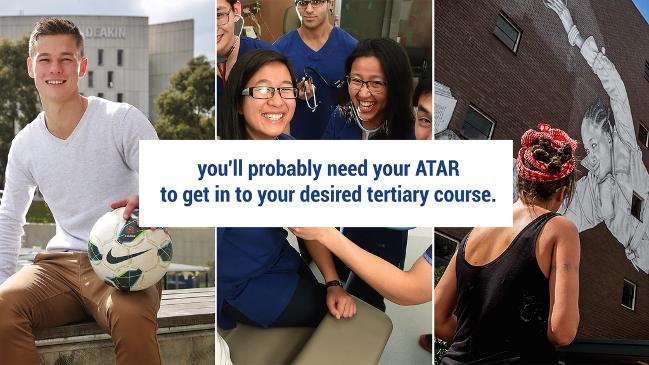VET versus higher education: What’s the difference?
DON’T know the difference between degrees, diplomas and certificates? And does it matter which one you do? Here’s our guide to higher education and VET courses.

VCE
Don't miss out on the headlines from VCE . Followed categories will be added to My News.
UNSURE of whether you want to go to uni or TAFE? Four years, depending on your course, is a long time to commit to studying, especially if you’re unsure of what you want to do at the end of it.
So, if you’re thinking of tertiary education, here’s the difference between higher education and vocational education training courses.

WHAT IS A HIGHER EDUCATION COURSE?
These provide professional qualifications with an emphasis on knowledge, theory, personal attributes and the development of professional skills. Some courses train you in specific vocations, leading to careers in clearly identified areas, while others are ‘generalist’. They allow you to increasingly focus on particular areas of study as you proceed and develop a range of transferable skills.
Qualifications include:
• Associate degrees or diplomas that generally require between one and two years full-time study, although some offer an accelerated one-year program. Diplomas may also provide a clear pathway into a degree course.
• Bachelor degrees, which take three to four years to complete.
• Postgraduate studies, which include postgraduate degrees, honours, Masters degrees and doctorates.

WHAT IS A VOCATIONAL EDUCATION COURSE (VET)?
These provide both professional and paraprofessional qualifications with an emphasis on practical skills and vocational outcomes that lead into higher level training, higher education or employment. A wide variety of study areas are offered.
VET qualifications include:
• Certificates I-II: These are the most basic qualifications. They range in length from a few weeks to several months and introduce learners to a vocational field. These courses can also provide a pathway to further learning, particularly for those who have not completed a year 12 certificate.
• Certificate III-IV courses: Generally take six months to a year to complete. They include trade-level certificates and can lead to skilled employment. Certificate IV courses can be used as a pathway to diploma-level training or higher education courses.
• Diplomas and advanced diplomas generally require one or two years full-time study. They provide deeper level training and equip learners to undertake advanced skilled or paraprofessional work. They can also provide a pathway to higher education.


